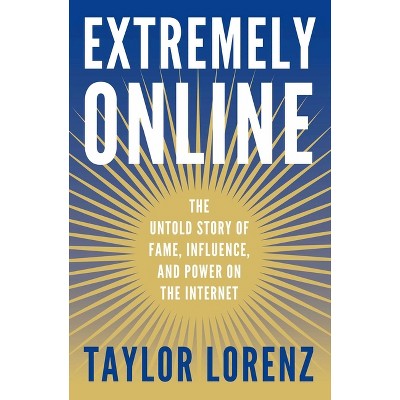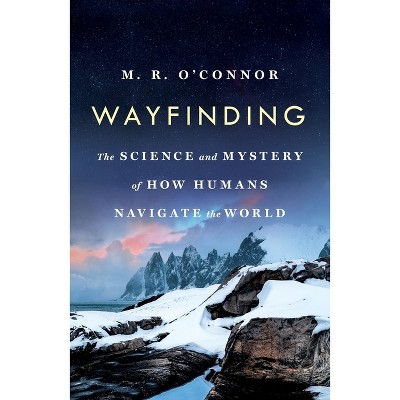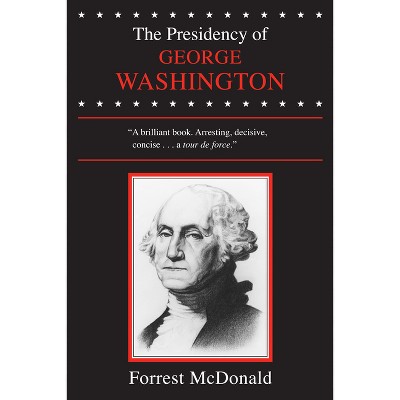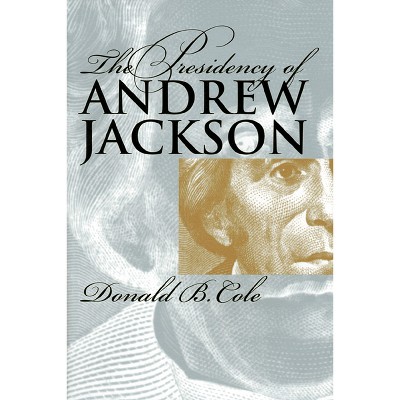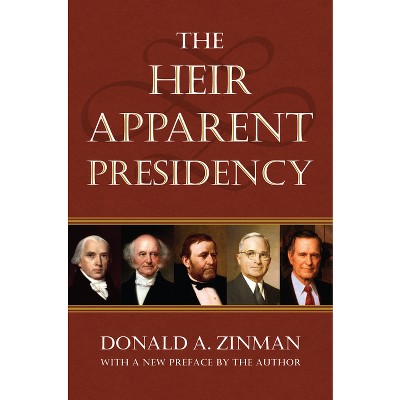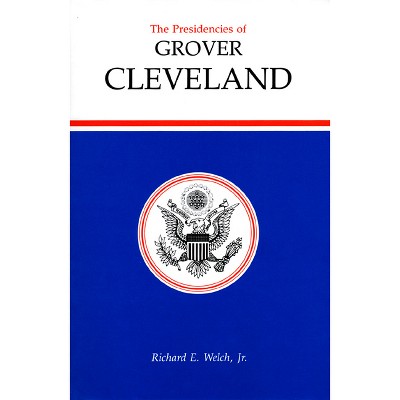Sponsored

Remaking the Presidency - by Peri E Arnold
In Stock
Sponsored
About this item
Highlights
- In a period of American history marked by congressional primacy, presidential passivity, and hostility to governmental action, Theodore Roosevelt and Woodrow Wilson became iconic presidents through activist leadership.
- Author(s): Peri E Arnold
- 290 Pages
- History, United States
Description
About the Book
The first comprehensive study of the three Progressive Era presidents who stretched the limits of the early twentieth-century presidency in order to meet the emerging public expectations. Explains the leadership differences between the three presidents and looks at the impact the Progressive movement had on the office of the presidency.Book Synopsis
In a period of American history marked by congressional primacy, presidential passivity, and hostility to governmental action, Theodore Roosevelt and Woodrow Wilson became iconic presidents through activist leadership. Peri Arnold, a leading presidential scholar, goes beyond the biographers to explain what really set Roosevelt apart from his predecessor William McKinley, how Wilson differed from his successor Warren G. Harding, and how we might better understand the forgettable William Howard Taft in between. This is the first comparative study of the three Progressive Era presidents, examining the context in which they served, the evolving institutional role of the presidency, and the personal characteristics of each man. Arnold explains why Roosevelt and Wilson pursued activist roles, how they gained the means for effective leadership in a role that had not previously supported it, and how each of the three negotiated the choppy crosscurrents of changing institutions and politics with entirely different outcomes. Arnold delineates the American political scene at the turn of the twentieth century, one characterized by a weakening of party organizations, the rise of interest groups and print media, and increasing demands for reform. He shows how the Progressive Era presidents marked a transition from the nineteenth century's checks and balances to the twentieth's expansive presidential role, even though demands for executive leadership were at odds with the presidency's means to take independent action. Each of these presidents was uniquely challenged to experiment with the office's new potential for political independence from party and Congress, and Arnold explains how each had to justify their authority for such experimentation. He also shows how their actions were reflected in specific policy case studies: the Northern Trust and naval modernization under Roosevelt, tariff reform and the Pinchot/Ballinger debate over conservation under Taft, and the Federal Reserve and Federal Trade Commission under Wilson. Ultimately, Arnold shows how the period's ferment affected both the presidency and its incumbents and how they in turn affected progressive politics. More important, he helps us better understand two presidents who continue to inspire politicians of differing stripes and relates their leadership styles to the modern development of the presidency.Review Quotes
"Arnold's fresh perspectives concerning Progressive Era politics will delight anyone interested in the period. Likewise, the reflections about the development of the presidency are thought provoking, particularly Arnold's conclusion that the successes and failures of these three men did not blaze a trail straight to the 'modern presidency.'"--Journal of American History
"Arnold has made an important contribution to our understanding of the era. His analytical methods, which rely on the tools of political science and history, will cause readers to rethink their views of these presidencies. Though aimed at academic readers, this quite readable book deserves a wider audience."--Washington Times
"Combines broad and illuminating analysis of executive leadership style with an informative account of the social forces resulting in the Progressive Era. . . . Effectively and convincingly places the three executives' impact on the evolution of the presidency during this era of political and social change."--Presidential Studies Quarterly
"Arnold's cases and argument are persuasive. . . . Arnold has written a captivating book--steady on working through mounds of material to formulate a coherent, sensible, and cogent interpretation of changes in presidential leadership in the Progressive era."--Congress & the Presidency
"For political scientists, [this book] joins other distinguished works on the presidency in the APD literature by the likes of Stephen Skowronek, Jeffrey Tulis, and Sidney Milkis in demonstrating the richness of insights that have been gleaned from treating the office historically. For historians, the book approaches some much-studied personalities and events in a different light, offering categories for comparative analysis that scholars of the Progressive Era might fruitfully employ to revisit what has often seemed a topic they have thought they know all too well."--Journal of the Gilded Age and Progressive Era
"Provides a broad overview and background for the study of the presidency during the Progressive Era and a needed piece of the puzzle for considering the broad changes in the office that resulted from this period."--Register of the Kentucky Historical Society
"A superior volume notable for its compositional clarity coupled with a keen analysis of the period. ...This political history, simultaneously concise, analytical, and compelling, will prove to be among the best works on this period. Essential."--Choice
"An engaging and persuasive account of presidential leadership in the Progressive Era. The reader comes away with a renewed appreciation for the political skills of these three presidents as well as a heightened sensitivity to the institutional constraints and opportunities each faced."--Richard Ellis, author of Presidential Travel: The Journey from George Washington to George W. Bush
"A very important book that will strengthen Arnold's reputation as America's foremost institutional historian of the presidency."--Benjamin Ginsberg, coauthor of Presidential Power: Unchecked and Unbalanced
Shipping details
Return details
Trending Non-Fiction








